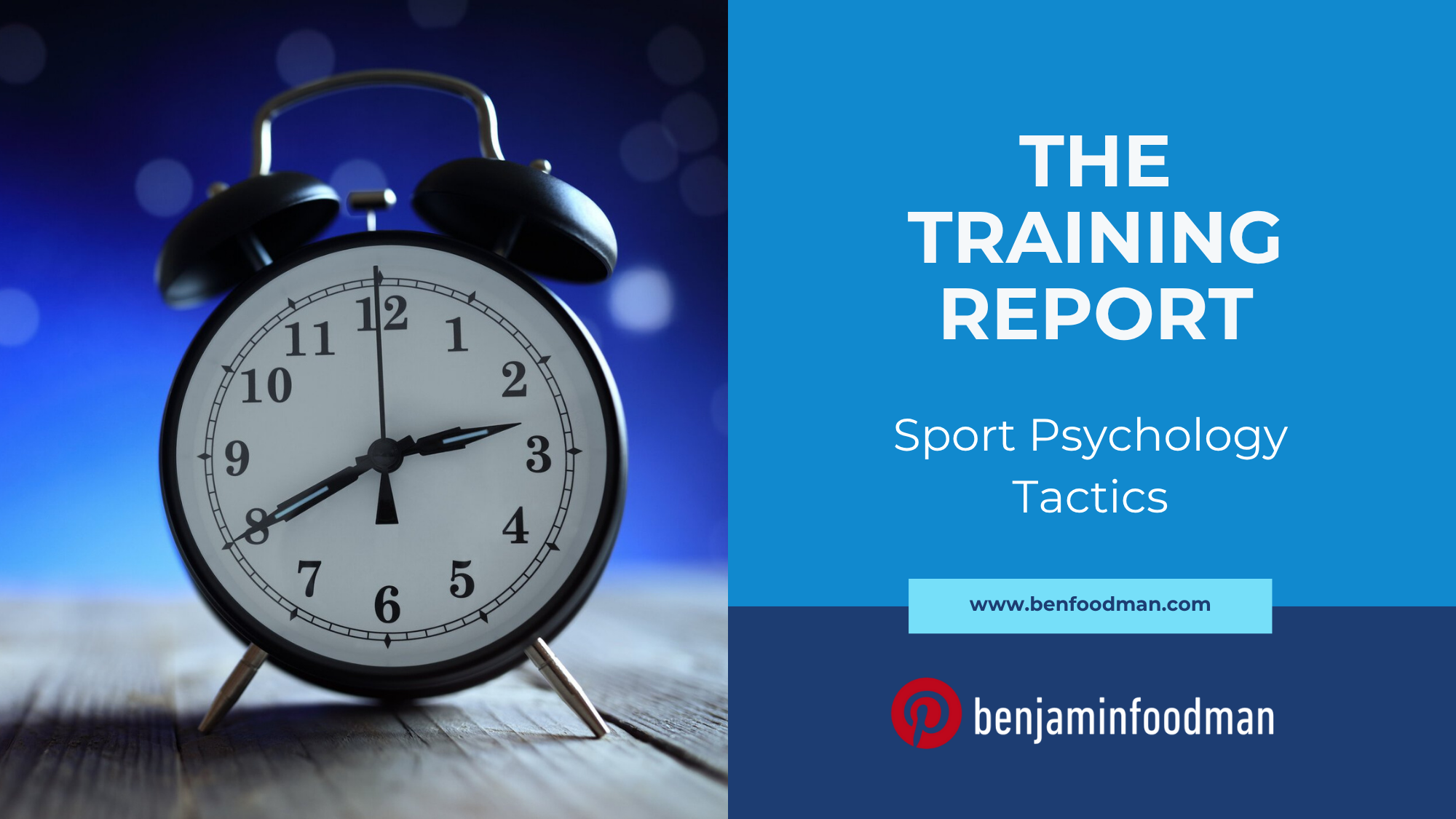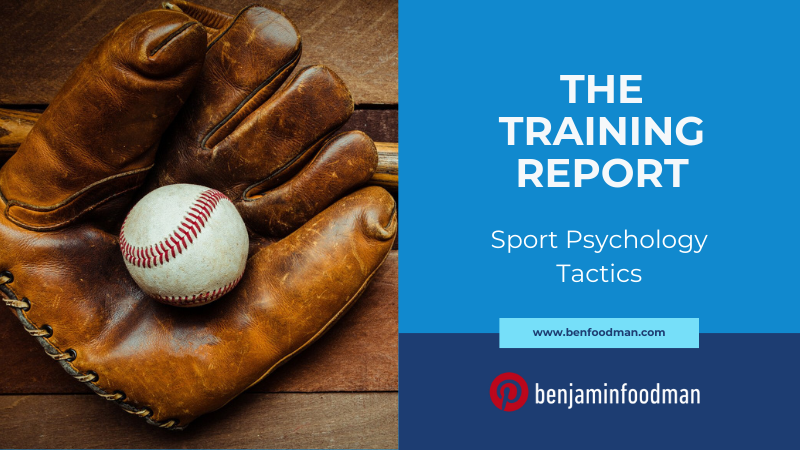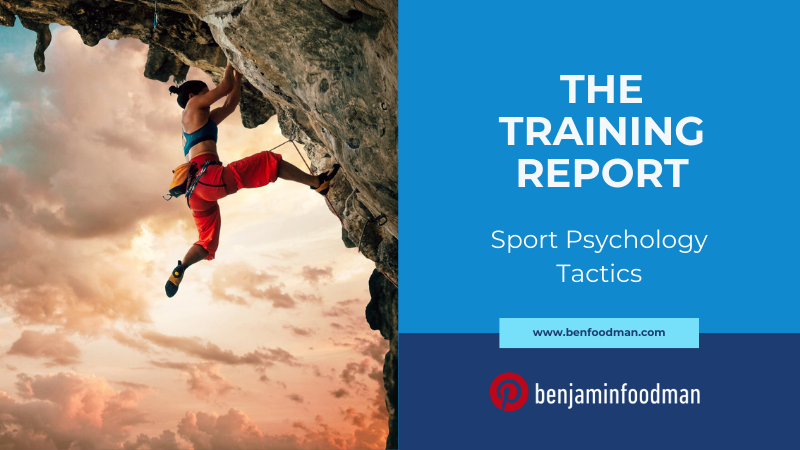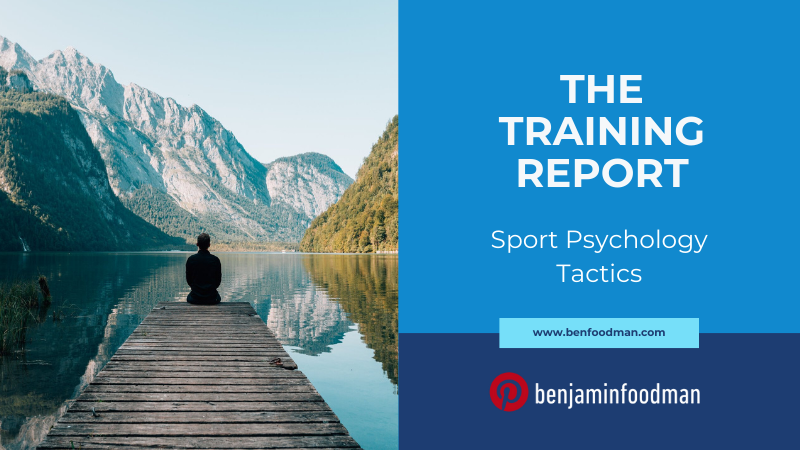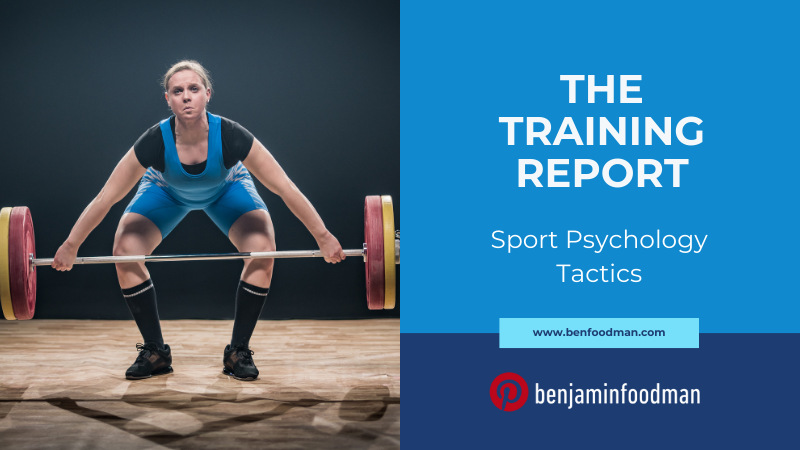Why Is Sleep Performance Critical For Athlete Mental Performance?
Athletes need to focus on achieving high quality sleep because this helps performers make new memories and also consolidate newly learned material so that they do not forget this information. Poor sleep leads to poor health outcomes and decreases in psychological performance. Just like sports competitions, athletes should develop pre-performance routines for sleep to improve their quality of sleep.
Last updated 10/18/25, written by Benjamin Foodman, CMPC, LCSW, CSCS
About The Author
Ben Foodman is a licensed psychotherapist & Certified Mental Performance Consultant (CMPC) through the Association for Applied Sport Psychology (AASP). He owns his private practice located in Charlotte North Carolina where he specializes in working with athletes to help them overcome mental blocks (the yips), increase mental toughness and improve focus using techniques such as Brainspotting, biofeedback, exercise science and sport psychology. If you are interested in services, use the link here! Enjoy the article below!
Introduction: Sleep, Athletes & Peak Performance Outcomes
As a professional operating within the field of sport psychology, my job is to help my clients find any advantage they can in order to enhance their psychological performance. We look at their mental training skills, psychological health, strength training periodization protocols and even their nutrition habits. But regardless of what my client’s needs are, one of the first things I evaluate is their average quality of sleep. Elite performers and athletes recognize that sleep can affect their performance, but they may not necessarily understand the science behind sleep or how significant of an impact sleep can have on peak performance. But there are other important factors to sleep that athletes need to be aware of when committing to proper sleep hygiene.
First, athletes investing in different training modalities really need to analyze their ‘return on investment’, and no performance enhancement method screams ‘positive return on investment’ then sleep. We know this because sleep is free, it can be done anywhere, and we feel incredible when we have had the experience of high quality sleep. Furthermore, sleep quality is a key metric when evaluating risk of injury, poor mental health, and potential undiagnosed health care concerns. So for this Training Report, I want to focus on exploring the science of sleep, why sleep is so important for elite performers and athletes, and how to develop a routine to potentially enhance your sleep performance. First, let’s explore the science of sleep.
Part I. What Is The Neuroscience Of Sleep?
Sport psychologists, psychiatrists, mental health professionals, strength & conditioning specialists, and a variety of other professionals have taken a great interest in trying to not only better understand sleep, but also find ways to help their clients harness the maximum amount of benefits one can accrue from high quality sleep. No one can definitively state ‘why’ we sleep, but we know that it is critically important. After all, as one expert within the field of sleep science cleverly pointed out in their book Why We Sleep, ‘When you are asleep, you cannot gather food, you cannot socialize, you cannot find a mate and reproduce, you cannot nurture or protect your offspring. Worse still, sleep leaves you vulnerable to predation. Sleep is surely one of the most puzzling of all human behaviors’. Furthermore the author cites a second expert quoting ‘If sleep does not serve an absolutely vital function, then it is the biggest mistake the evolutionary process has ever made’. So instead of asking why we sleep, let’s focus on some important factors in regards to what is actually happening in our bodies when we sleep. After all, before you can begin making significant alterations to anything you first need to understand how it works.
The human body in many ways is a type of clock. Within this clock is a structure that helps regulate our sleep cycles known as the suprachiasmatic nucleus.
The suprachiasmatic nucleus is a bilateral structure located in the anterior part of the hypothalamus and is the central pacemaker of our circadian clock which facilitates most of our internal clock systems (there are secondary systems in place but for now we will primarily focus on this structure).
This structure is one critical aspect that helps us regulate our sleep patterns, such as our ability to stay alert and operational during the day and ‘wind down’ in the evening.
In addition to the structures in our body and brain that regulate sleep, there are other important processes that contribute as well. As soon as we wake up from sleep, our body begins to build up with a chemical called adenosine, and the longer the day goes on the more adenosine we build up.
Once we begin nearing the end of our day, the adenosine buildup which is referred to as ‘sleep pressure’ provides us with the sensation of wanting to fall asleep.
Thus when we are asleep, our brain and body use this time to reduce the levels of adenosine buildup providing us with the sensation of wakefulness after sleeping (assuming we have had a good night of sleep).
There are unfortunately many factors that can negatively affect our ability to have high quality sleep. For instance, unchecked coffee consumption can have a adverse effect on sleep quality.
The caffeine molecule binds to adenosine receptor sites in the brain, preventing the actual adenosine molecule from occupying its’ rightful place. This process of caffeine consumption gives the host a sense of being awake, but adenosine levels continues to build up within the body.
This is important because even though we all oxidize caffeine differently, caffeine has a half life of approximately 7-10 hours, meaning that at least 50% of the compound is still active in your body continuing to inhibit the offloading process of adenosine.
Inevitably by the time your body has completely oxidized caffeine, you still have to offload the adenosine debt your body has accrued which will affect your sleep.
There are also many other significant factors that can inhibit sleep as well such as the following: excessive psychological stress; clinical mental health disorders such as Post Traumatic Stress Disorder, ADHD, Depression; & Exercise Overtraining Syndrome. But considering all of this information let’s continue to explore why elite performers & athletes should be concerned with sleep.
Part II. What Is Relationship Between Sleep & Athlete Mental Performance?
Elite performers and athletes recognize that sleep can either have a positive or negative impact on their performance, but understandably they many not necessarily recognize the full extent to which sleep can affect their performance. There are several areas of concern that performers should be aware of when experiencing sleep loss or poor quality of sleep. First, even mild sleep loss can significantly affect an individual’s systolic blood pressure eventually leading to degradation of blood vessels such as the coronary arteries. Why is this an important point of contention for athletes to be aware of? Many types of athletes (especially endurance athletes) need to be efficiently delivering oxygenated blood to the working muscle tissue through proper heart function. Impair that process and athletes will most certainly be impacting their ability to perform at a high level. Another area where elite performers and athletes need to be concerned is how poor sleep can negatively affect metabolism. In one particular study cited in Why We Sleep, two hormones leptin and ghrelin (leptin signals the sensation of feeling full, ghrelin triggers a sensation of being hungry) were found to be significantly impaired which caused participants in those studies to have increased bouts of hunger causing dysregulated eating patterns. This inevitably led participants to gain unwanted body weight. While it is important to acknowledge the potential negative outcomes that are associated with poor sleep, there are significant positive outcomes that can occur when individuals experience high quality sleep.
In regards to memory, individuals who experience high quality sleep are able to revitalize their capability to make new memories, and also consolidate newly learned material so that they do not forget this information.
This is especially important for elite performers and athletes because these individuals are constantly learning and memorizing new material to help improve their craft (play calls, playing music).
While there are many psychological benefits to high quality sleep, there are also many physical ones as well. Motor learning and function can improve with high quality sleep, but just as important as that is our ability to heal and reduce the likelihood of injury.
In a 2014 research study Chronic lack of sleep is associated with increased sports injuries in adolescent athletes, researchers Milewski at al found that participants who experienced an average of 6 hours of sleep were at a nearly 70% increased risk of injury, whereas individuals who experienced 8-9 hours of sleep were only at a 15% chance of injury. When parsing through the mountains of evidence based research that supports this FREE performance enhancing process, the only conclusion that high level performers and athletes should come to is that they need to enhance their sleep performance. So in the same way that athletes train to achieve high levels of performance, these same individuals and their support staff need to view sleep as a performance in and of itself. Let’s look into some different strategies that high level performers and athletes can employ to help improve their sleep performance outcomes.
FAQ
-
Athletes will report feeling fatigued, not getting enough hours of sleep, increased number of injuries, increased soreness, poor focus, etc.
-
Athletes are not usually thoughtful on caffeine consumption, being on their phone late at night, not actually prepping their body for sleep (e.g. not taking a hot shower, staying up later than they should, etc.).
-
Athletes should always first consult with their doctors or healthcare professionals that are licensed to help with these issues. Athletes should first identify if there is an underlying medical issue such as sleep apnea.
Part III. Pre-Performance Recommendations For Athletes & Sleep
Athletes and elite performers looking to improve their sleep performance need to first assess their sleep environment, make small but realistic changes to their routine, and adhere to the same dedication to sleep performance as they do within their regular sport performance domains (or other performance fields such as music, military, etc.). Over the course of my career I have found common themes that have negatively affected my clientele’s ability to advance their sleep performance. They are as follows:
Athletes are on their phones and/or TV during bedtime
Athletes have multiple clocks visible within their bedroom
Athletes consume excessive amounts of liquid and caffeine too close to bed time
Athletes fail to consistently apply the same room temperature to their bedroom.
These are significant data points that can have a dramatic impact and should be altered in the following ways: individuals should discontinue the use of electronics when they are in bed (no TV, no phone, no video games, etc.) due to the fact that research strongly suggests that the light emitted from these devices signals to your brain to remain awake; if/when individuals wake up in the middle of the night, avoid checking the time so that the individual does not re-enter into a processing state which again signals to the brain that sleep is not the immediate goal; reducing consumption of liquids and caffeine closer to bedtime will potentially prevent having to use the bathroom in the middle of the night, which could affect going back to sleep; research suggests that the optimal sleeping temperatures are between 65-69 degrees, so therefore individuals should find which temperature setting will best fit their preferences. But there are other strategies elite performers can implement as well.
The same way individuals would construct a pre-performance routine for both sport performance and mental skills training, athletes and elite performers should be constructing an individualized pre-performance routine for sleep. An analogy to keep in mind is if you are a college athlete and you need to go lift weights immediately after classes, would you walk straight from class and start immediately lifting weights, or would you first go to the locker room, change and then warm up? You need to signal to both your body and your subcortical brain that it is time to wind down and there are several possible ways you can do this.
First, practice a 20 minute diaphragmatic ratio breathing regimen (one cycle equals 4 seconds of inhaling through your nostrils, 8 seconds of exhaling and pushing down on your diaphragm). The longer exhale taps into your parasympathetic nervous system slowing down your heart rate which causes your body to be calm and relaxed.
Make a concerted effort to keep all electronic use away from the bed and if possible, set up your materials that you will need for the following day (e.g. outfit laid out, sport bag packed, backpack with work packed, etc.). I’ve also had clients report that simultaneous use of adding a weighted blanket along with a chiliPAD cooling mattress to their sleep routine enhanced their ability to reach deep sleep.
Finally, start keeping track of the quality of your sleep once you begin implementing your sleep performance routine. Whatever you decide to do, understand that their is an enormous amount of data that strongly supports the health and performance benefits of sleep. This is a free, and immediately accessible resource that can help you achieve performance excellence!
Note To Reader:
If you are an athlete reading this segment of the TRAINING REPORT, hopefully this content was helpful! I put the Training Report together because I felt like many of the discussions on issues such as the Yips/mental blocks, strength training & other subject matter on athlete performance concepts were really missing the mark on these ideas (e.g. how trauma is the direct cause of the Yips). If you are interested in learning more, make sure to subscribe below for when I put out new content on issues related to sport psychology & athlete performance! Also, if you are looking to work with a mental performance specialist, you are in the right place! USE THIS LINK to reach out to me to see if my services are the right fit for your goals!
ARE YOU ON THE LIST?
Make sure you’re signed up to Ben’s mailing list to receive news & updates on new strategies in sport psychology, upcoming workshops & products. Don’t wait, sign up now!


